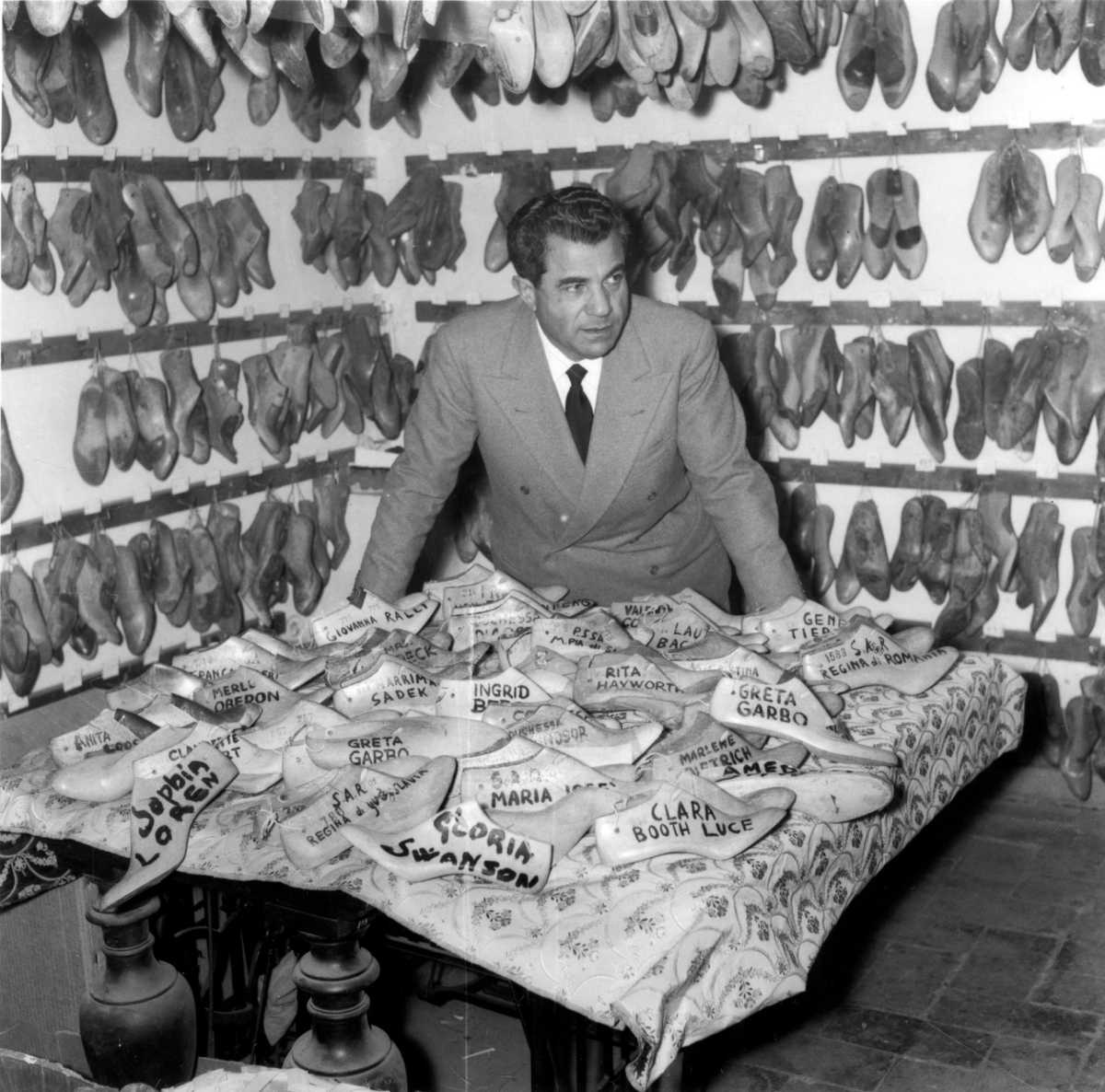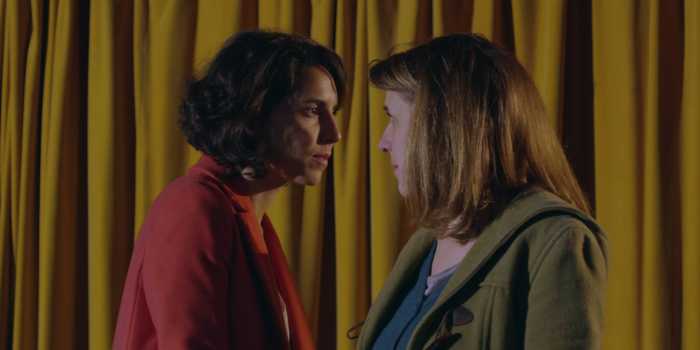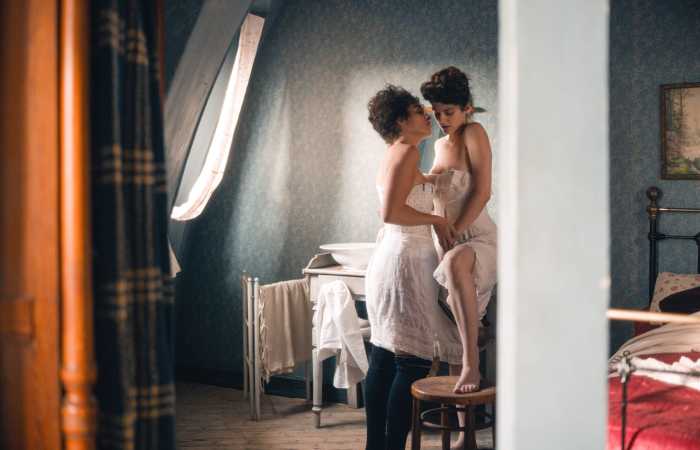Gay filmmaker Luca Guadagnino’s affectionate documentary, “Salvatore: Shoemaker of Dreams,” narrated by Michael Stuhlbarg, presents the life and work of Salvatore Ferragamo through interviews, archival footage, and of course, shoes.
The film traces the production of a Ferragamo shoe, but it also chronicles how the designer became successful. He studied under a shoemaker in his hometown of Bonito, Italy and left for America while still a youth. He ended up going to California and working for movie studios — first in Santa Barbara, then in Hollywood. His designs for Douglas Fairbanks’ character in “The Thief of Bagdad,” or Rudolf Valentino’s shoes, were legendary, but he also created shoes for Lilian Gish, Gloria Swanson, and other luminaries. Returning to Florence, he opened a shop but soon went bankrupt before rebuilding and becoming the household name he is today.
Guadagnino presents all of this — and plenty of shoes! — with commentary by designers like Manolo Blahnik and Christian Louboutin, as well as filmmaker Martin Scorsese, fashion editor Grace Coddington, and costume designer Deborah Nadoolman Landis.
The filmmaker spoke with Gay City News about Salvatore Ferragamo and his fabulous new documentary.
Ferragamo had determination. He was a craftsman, an innovator, and visionary. What inspired you about him or what did you connect with that you needed to make this film?
What I was attracted to in Ferragamo’s legacy was the nature of the maverick — someone who is convinced of an individual path that he creates a cannon from the sheer strength and his talent and will. He is someone who has always pursued new ground. He was a kid in his house in the countryside of the south of Italy, dreaming of being a shoemaker and going to Naples to learn the art. He was 10 when he did that. He opened his first store at 12. He took a big transoceanic liner to find fortune in America before he was 18. He landed and crossed the country to go to California to find something better than what he found on the east coast, where he saw mass production, which he wasn’t interested in. All of this is testament to his very beautiful determination and finding his own way.
What was your approach to telling his story? The documentary provides a fascinating oral history that addresses the personal, the professional, and the political.
I love that it is an oral history! I wanted it to be as rich and dense as possible. I set myself to the challenge of exploring all the materials we could get from the Ferragamo archives. We had more than 100 people talking in the movie. The importance of Ferragamo is such that one person could bleed out so many different directions — from the Hollywood history, to the history of the star system, to the history of medical invention, to fashion, anthropology, and everything. We went deep to find all the material we could, and we looked for people to interview. We shot the process of the craft — finding a way to describe how he makes these shoes, to how people walk in the shoes, all the way to this short film with all the shoes he created in this Busby Berkeley dance number.
You feature the making of a Ferragamo shoe…
The question is: What is an object? What is behind a simple object [Holds up his cell phone as an example]. To deconstruct the way it is built is a good way into the process which goes, eventually, to the actual creative act of one person, Salvatore Ferragamo, in this case.
There is considerable talk about shoes and feet in the film. What is the appeal?
One of the interviewees says the shoemaker is like a magician. The shoe has power. It is holding our feet, bringing us to the ground, and giving us a sense of who you are. You can be completely plain in the way you are dressed but with the shoe, you are identified with what you want to be identified with. It is a talisman and there is something archetypical about it.
Cinema is such an important part of Ferragamo’s career, and you use the clips well to tell the story. What observations do you have about how movies helped Ferragamo’s career?
Ferragamo went to Hollywood in a moment when Hollywood was invented, and he participated in the creation of Hollywood. He understood, more and more consciously, the importance of the creation of the star system. There is a learning curve in his experiences there, but Hollywood gave him more an understanding of the symbolic nature of business and the how much the imagery deals with consumption.
Family is often a key element in your films “I am Love” and “Call Me by Your Name.” Can you talk about the importance of family for Ferragamo?
In his case, he really needed — and he created — a family. He was an inventor. He invented his own self by becoming a shoemaker. He invented the idea of shoes as a product and tool of empowerment and beauty. In Italy, he looked for a wife and found one in his own village. He made a beautiful family out of necessity of having a family. He must have been a control freak in a good sense.
Ferragamo was both a magician and a philosopher. What do you think accounted for his success?
Being a visionary and being completely and absolutely and totally determined to keep going and work, work, work.
Do you share that quality?
You should ask people who know me. I know that I work a lot, though.
Did you find any flaws with Salvatore?
I like the guy. There was not a lot of information about his sentimental life when he was in America, and I wonder what he was going through there. When you make shoes that are luxurious, you make shoes for the powerful. Sometimes, he must have made shoes for powerful people that were not nice people to make shoes for. But who am I to question that?
I have to ask: do you own a pair of Ferragamos?
I do. They are very comfortable.
“Salvatore: Shoemaker of Dreams” | Directed by Luca Guadagnino | Opening November 4 in Theaters | Distributed by Sony Pictures Classics.





































